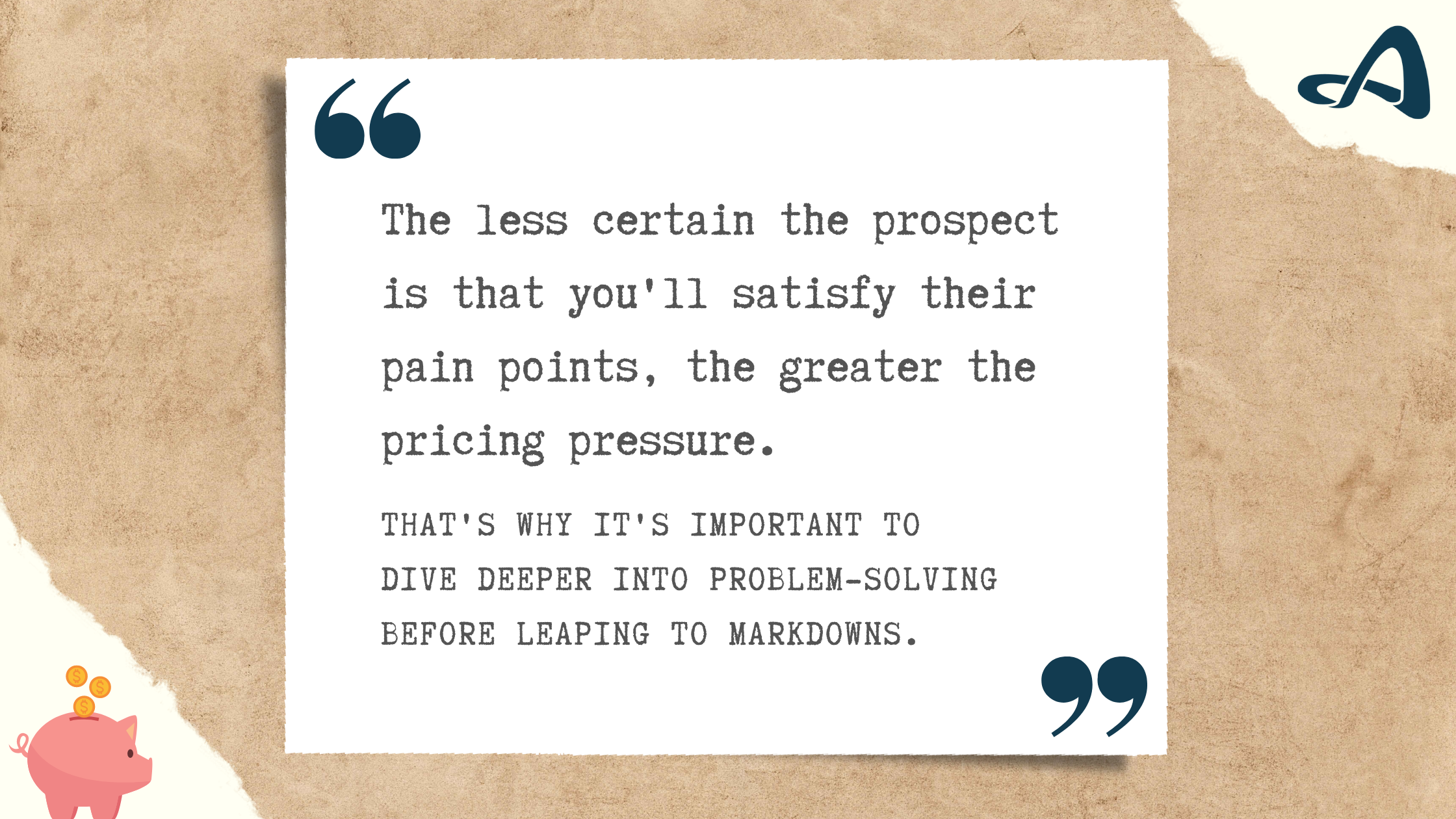Seal the Deal – Part 1: How to Overcome Objections in Contract Negotiations
Insider | Agency Ownership | Business Advice | Best Practices | Agent Program | Recruiting
The word 'no' can be tough to hear, even for experienced negotiators. If you're on a tight deadline to meet a quota or looking to squeeze in a last-minute deal before your next bonus, the intricacies of contract negotiations can feel daunting. Fortunately, creating lucrative business agreements doesn't have to feel like a battlefield.
As an agent recruiter at Armstrong, I spend a good portion of my day negotiating agreements that benefit both the prospect and Armstrong. While agents are 1099 contractors who operate independent businesses, Armstrong employees interact with our agents’ teams, customers, and carriers. We strive to structure a deal that is good for everyone.
The first step to negotiating an agreement is overcoming objections, whether you're a recruiter looking to build a relationship with a prospective candidate or a salesperson trying to pursue an important lead. You can't dive into the specifics of an agreement until you've established buy-in.
In this two-part series, I outline how I create win-win agreements for both parties. This blog post focuses on how to overcome objections and foster trust with a prospect. Next, we'll look at the art and science of negotiating the deal.
What are Objections?
.jpeg?width=307&name=Woman%20with%20her%20hand%20extended%20signaling%20to%20stop%20(only%20her%20hand%20is%20in%20focus).jpeg)
Objection handling focuses on moving a prospect from a no to a yes. In the early stages your prospect voices concerns about your product or company. As the face of your organization, it’s important to overcome these barriers and identify solutions for both parties, moving your prospect one step closer to a close.
Most objections are rooted in one of the following categories:
- Lack of budget. The prospect is worried the transaction will involve greater financial risk than reward.
- Lack of trust. The prospect feels skeptical about you, your company, or your service.
- Lack of need. The prospect doesn't see enough opportunity in the transaction.
- Lack of urgency. The prospect doesn't feel that establishing an agreement is pressing.
Although it's natural to feel defensive when a prospect objects, try to see it as a positive. Voicing objections is a sign the buyer is engaged and at least considering your offer.
Tips for Overcoming Objections
Anticipate and Prepare for Objections
The best way to tackle objections is to prepare for them before the conversation starts. Think through objections you've run into in the past. Which ones do you run into most frequently? What objections were dealbreakers?
You should also review your near misses – opportunities you won but almost didn't. What made the prospect change their mind? What did you say that pushed them to close?
A cheat sheet of common objections and appropriate responses is a great resource. Knowing what to say ahead of time can help you respond more professionally and feel more confident in your ability to close deals. If it doesn’t exist, work with your team to create one and keep it updated as you run into new or challenging objections.
Understand and Validate Their Objections
Active listening is one of the most critical skills for overcoming objections. It's natural to become defensive when a customer objects, but letting your prospect fully explain their thoughts is more productive. Rather than being upset that they're protesting, reframe the situation: they're actively talking you through their concerns. You can't work through their pain points if you don't know what they are.

However, prospects may not be transparent in their true concerns. You're more likely to run into objections relating to cost, necessity, or timing than a lack of confidence in the product or trust in the contact person. Asking open-ended, probing questions is a great way to dive deeper into the root of their concerns. What are the biggest challenges they’re facing? What concerns do they have about making a change? Don’t make assumptions; instead, work to uncover the real pain point.
Once your prospect has thoroughly voiced their concerns, validate them. When people feel that they've been heard, they're generally more willing to discuss solutions. Even if the objection seems trivial or you have a rebuttal in mind, it's important to make the person feel that you understand things from their perspective. A way to do this is to reinforce your understanding of their thoughts or to ask for clarification where needed:
- “These are the main points I've heard you make so far.”
- “That sounds rough. How can I help?”
- “I'm not sure I understand. Could you tell me more about..."
Respond Effectively
Once you've fully listened to and acknowledged your prospect's concerns, you can begin to tackle their objections one by one.
Recruiters and salespeople frequently talk themselves out of a close by being overly eager. Your goal should be to resolve their concerns clearly and concisely. Answering unasked questions, pitching unwanted features or benefits, and misaligning your solution to their pain points may send your prospect to a competitor.
A way to challenge the prospect's concerns is to reframe the problem and provide alternatives. If they say your solution doesn't completely eliminate their pain points, ask how your offering can be customized to meet their needs better. What alternative value-add services you can offer?
Enhance Your Value (Rather than Discount It)
It can be tempting to leap to discounts when you're working to close a prospect. Keep in mind that number negotiations are rarely the root of the issue if the person trusts your brand and is confident in the value of your offer. The less certain the prospect is that you'll satisfy their pain points, the greater the pricing pressure. That's why it's important to dive deeper into problem-solving before leaping to markdowns.

Alleviate Your Prospect’s Concerns
Once you've addressed all of your prospect's objections, confirm that you've satisfied their concerns. A simple head nod while you addressed their objections doesn't mean they agreed with your propositions. Often, a prospect will offer a lukewarm 'yes' at the moment, then change their mind once you're out of sight.
One way to eliminate this "buyer's remorse" is to log all the objections your prospect raised. Before moving from objection handling to contract negotiation, review each of their concerns a final time to ensure they're satisfied with your offering. While taking time to review the objections a second time may feel unpleasant, it's important to remember that your prospect certainly hasn't forgotten about them. And all it takes is one not-fully-addressed concern on their list to kill a deal.
Know When to Move On

While it’s natural to want to close as many deals as possible, evaluating how each prospect aligns with your organization is essential. Not everyone will be a good fit. It’s helpful to have clear, formal guidelines describing who is and is not a good fit, such as our webpage outlining which prospects are best suited for our agent program. These metrics come in handy when evaluating how worthwhile a candidate is for your time and effort. You'll want to learn how to disqualify prospects at each stage of the contract-making process and focus on those most likely to be profitable.
Some objections are legitimate blockers to a successful close. Your competitor's offer may be a better fit for their needs, or you may not be able to provide benefits that are critical to your prospect. In these situations, it's better to use that time to engage in another opportunity than to make overly aggressive attempts to overcome their objections. While you may lose the deal, you'll gain the prospect's trust and potentially open the door to an agreement down the road when there's better alignment.
Want to Partner with a US Best Managed Company?
At Armstrong, we understand that your business is your livelihood when you're an independent contractor. I always encourage my prospects to shop around. There are several factors to consider when selecting a freight agent program, including corporate culture, earning potential, benefits, back-office support, the TMS and technical offerings, and financial stability.
My confidence in our program makes it easy to talk with prospects. With industry-leading commissions, no fees, personalized support for your business, and web-based technical solutions, we make the business of running a business easier for our agent partners.
Interested in learning more about our agent program? Visit our website today to speak with the Agent Relations team!
About Jennifer Koskie
Jennifer has been an agent recruiter for Armstrong since 2021, having previously worked at C.H. Robinson and other top-performing logistics companies. With 15 years of supply chain experience in domestic and international markets, Jennifer is highly skilled in talent acquisition, transportation management, marketing, and customs brokerage.



